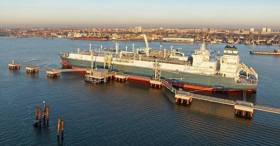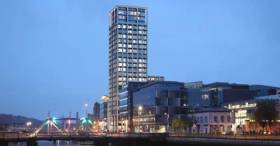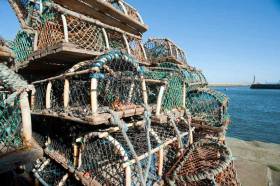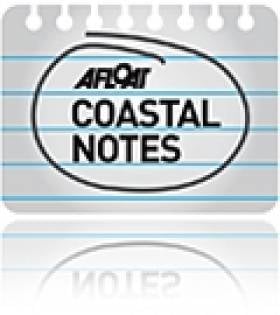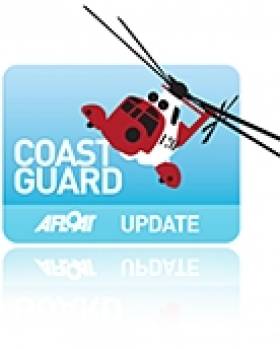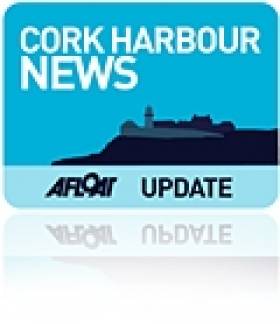Displaying items by tag: petition
New Petition Claims Irish Curlew “Is Headed to Extinction”
Just 34 breeding pairs of curlew were confirmed in the fifth year of the Curlew Conservation Programme, according to figures in its 2021 report.
And of that number — recorded across nine important breeding areas — only nine pairs were confirmed to have produced fledglings, a breeding success rate of just 26%.
While the breeding productivity rate of 0.50 fledglings/breeding pair is above the threshold of 0.43 required for a stable population, it continues a significant trend of decline since 2019 when the rate was 0.81.
The figures have prompted an online petition to Minister of State Malcolm Noonan amid fears that the Irish breeding curlew “is headed to extinction” due to human activity.
It calls on the minister and the National Parks and Wildlife Service (NPWS) to take action on a number of points, including an immediate increase in funding for curlew conservation, and establishing an integrated stakeholder emergency taskforce” led by the current conservation programme.
It also appeals for allocating former Bord na Mona peatlands as priority habitats for curlews, and initiating a review of commercial forestry licensing “where the habitat is favourable to ground-nesting birds”.
“If these actions are not taken, the Irish curlew will be lost within the next decade,” the petition organisers say. “This will be a preventable tragedy we can not stand idly by and let happen.”
The wading birds are winter visitors to Ireland’s inland and coastal wetlands, but also breed in inland floodplains and bogland, in rough pastures, meadows and heather.
However, according to Birdwatch Ireland their numbers and range “have declined substantially in recent decades. It is likely that increased afforestation and agricultural improvement are responsible for these declines.”
Curlew in Ireland are red-listed as a threatened species.
Fracked Gas: Petition Against Plans to Import from US to Cork Harbour
A plan to store fracked gas in Cork could be illegal a Cork TD has claimed.
It comes as more than 2,000 signatures writes EchoLive.ie, have been gathered on an online petition opposing the potential Cork Liquified Natural Gas (LNG) terminal.
If it goes ahead, fracked gas from the United States would be imported into Cork harbour.
In 2017 a Memorandum of Understanding was signed by the Port of Cork with US company NextDecade as Afloat previously reported..
It could see an LNG terminal built, using a floating storage and regasification unit.
An online petition was created by the group ‘Not Here Not Anywhere’ who are a grassroots campaign against drilling for oil and gas off the Irish coasts and the development of any new fossil fuel infrastructure in Ireland.
For more click here
Start of Petition In Favour of High-Rise Buildings in Cork
A former Fine Gael candidate Julie O’Leary has started a petition in favour of high-rise, high-density development in the docklands.
The petition, reports EchoLive, was signed by close to 400 people in its first few hours online, comes after a flurry of planning applications for tower complexes in the docklands area.
Though the scale and design of the planned towers have been controversial, Ms O’Leary said that developments like these are key for Cork to grow.
“The key to unlocking Cork’s potential is building high density and high rise development in and near the city centre,” she said.
For further reading on this development click here.
Operators Stena And Irish Ferries Targeted in Animal Rights Group Bid to Halt ‘Vital’ Live Exports
#FerryNews - The animal rights Group Compassion in World Farming Ireland is to target key ferry operators in their latest bid to halt live exports.
The group writes Independent.ie is to target Niclas Martensson CEO of Stena Line and Eamonn Rothwell CEO of Irish Ferries Limited with a petition signed by 4,000 people.
In the petition the Group call on Stena Line and Irish Ferries to stop what they describe as ‘profiting from this inhumane industry’ by allowing their ferries to carry young calves and cattle destined for fattening and slaughter on the continent.
The live export trade is generally seen in the farming community as vital in stimulating price competition and providing an alternative market outlet for farmers.
Indeed the Minister for Agriculture, Michael has said the ongoing search for new third country markets is a priority for his Department, particularly in the context of Brexit.
The Minister has said that his Department attaches the highest significance to animal welfare in the context of the live export trade.
To read comments by the Minister click here in addition Stena RoRo's operated Stena Carrier which earlier this year carried calves to the continent.
UK Campaign To Make Static Fishing Gear Safer For Small Boats
#LobsterPots - Are lobster pots a danger to yachts? That’s the question posed by Yachting Monthly as the UK’s Cruising Association relaunches its campaign to make static-gear fishing safer for small vessels.
The CA has already received nearly 4,000 signatures on its online petition to the Department for Environment, Food & Rural Affairs (DEFRA) to seek “views regarding forceable regulation among other options” for improving the way static fishing gear is marked.
Before its original petition was shut down until after this summer’s UK general election, nearly 6,000 people had signalled their support for the initiative which also has the backing of CA patron and yachting legend Sir Robin Knox-Johnston.
The RYA has additionally launched an online reporting form for boaters to identify incidents of entanglement with poorly marked static fishing gear.
“We think it is time for everybody with an interest to work together to find a solution, particularly one that is cheap and practical for our fishermen,” said a CA spokesperson.
Yachting Monthly has more on the story HERE.
Dolphin Group Comments on Dalkey Island Prospect
#DALKEY ISLAND PROSPECT - The Irish Whale and Dolphin Group (IWDG) has joined the chorus of opposition to the proposed oil and gas exploration off Dalkey Island in Co Dublin.
As previously reported on Afloat.ie, Providence Resources has applied for a foreshore licence to search for oil or gas about 6km out to sea on the Kish Bank Basin.
But the prospect has provoked a split in the local community over the potential risks and benefits, with many calling for a public enquiry into the licence before it is granted.
This evening an urgent meeting in Dun Laoghaire will address the public's concerns, which have been echoed by the IWDG.
"The Kish Bank and adjacent waters are important for cetaceans," said the group in a statement. "In addition, sightings of bottlenose dolphins have increased dramatically in the area following the presence of a group of three individuals since August 2010."
The IWDG is concerned about the potential effects on dolphins and porpoises that "could due to noise generated from the drilling process", noting that "there is little published data on the intensity and effects of sound generated by drilling".
Protest group Protect Our Coast has launched a online petition against the Dalkey Island Prospect citing concerns over the proximity of the drilling area to the mainland as well as the Special Protection Area of Dalkey Island, which is a haven for marine wildlife.
- Irish Whale and Dolphin Group
- IWDG
- Dalkey Island Prospect
- Coastal Notes
- Dalkey Island
- Dublin
- oil and gas
- exploration
- drilling
- Providence Resources
- foreshore licence
- Kish Bank Basin
- community
- Dun Laoghaire
- bottlenose dolphins
- Porpoises
- Cetaceans
- noise
- sound
- Protect Our Coast
- protest
- petition
- Special Protection Area
- marine wildlife
Online Petition Challenges Cuts to UK Coastguard Network
A campaigner on Twitter is encouraging supporters to sign an online petition against the closure of coastguard stations across the UK.
So far almost 7,000 signatures have been added to the petition started by Twitter user @Coastguard_SOS in protest at the UK government's plans to streamline the Maritime and Coastguard Agency's nationwide network of rescue centres from 19 to 11.
As previously reported on Afloat.ie, campaigners in Scotland have made a desperate plea to save the Clyde station from closure in a public consultation.
Northern Ireland's rescue command centre at Bangor on Belfast Lough is among those saved from the chop following a review of reform proposals this past summer.
But concerns remain that resources will be stretched too thin if fewer stations are responsible for broader areas.
"The revised proposals are also unacceptable not least on the basis that vital local knowledge will continue be lost and therefore lives will continue to be out at risk on our coastlines," the petition warns.
'Three Months to Clean Up Haulbowline' Says Europe
The Government has three months to start cleaning the toxic waste site in Haulbowline or risk court action by the European Commission, the Irish Examiner reports.
The site at the former Irish Steel plant contains an estimated 500,000 tonnes of waste, including toxic heavy metals and cancer causing materials, and has been blamed for the area's notoriety in having one of the highest cancer rates in Ireland.
Two petitions from local groups totalling 5,500 signatures were presented to the European Parliament's petitions committee in Brussels on Wednesday, according to The Irish Times.
Mary O'Leary, chair of the Cork Harbour Alliance for a Safe Environment (Chase), outlined to the committe that in spite of four reports between 1998 and 2005 highlighting the dangers of contamination from the site, the Irish State has failed to regulate it or take clean-up action.
Petitions committee member Jean-Francoise Brakland said he "fully agreed" with locals' concerns over the "dangerous mess".
He also commended Environment Minister Phil Hogan for understanding "the difficulties and the challenges of environmental implementation" but cautioned that "we are not going to wait for the next 10 years".
Brakland promised that if no real action was taken on Haulbowline after three months, the commitee would seek a court judgement againt the State.
The Irish Examiner has more on the story HERE.



























